➔ This article refers to the 2021 conference. To learn more about COP27 and what it means for climate finance click here.
The primary goal of the commitments discussed during the 26th Conference of the Parties is to reach net-zero emissions by 2050, in line with the 2015 Paris Agreement. It’s a lofty goal, and naturally, it is one that requires global cooperation. But as has become increasingly clear, this cooperation isn’t exclusive to national governments. In fact, the private sector, NFPs, NGOs, state governments and the broader public have all shown a willingness to achieve the 2050 deadline for change.
So, what does COP26 mean for the ESG reporting requirements of this broad coalition?
This article explores what COP26 means for the reporting requirements of businesses, not-for-profits, and state governments. The private sector is bracing for new regulations and reporting requirements and is already innovating in preparation for them. Public pressure, through an increased awareness and condemnation of greenwashing, has inspired investors to mobilise funds towards climate mitigation. And in turn, transparency and accountability are becoming central to private sector discussions of Environmental, Corporate and Social Governance (ESG). Read on to discover how three broad trends intersected during COP26 and learn how they relate to impact reporting.
1. New regulations and consumer expectations around ESG reporting
Even before COP26 the popular interest in standards to measure and manage climate change was enormous. The term ESG has skyrocketed in popularity as new legislation is introduced to combat greenwashing. These wide-reaching legislations focus on the sustainability and comparability of funds. This shift has many businesses looking for the best way to implement ESG reporting.
The public is also increasingly aware of indicators used to measure social and environmental progress, with 74% of the world’s population recognising the United Nation’s Sustainable Development Goals (SDGs) as of 2019. A growing database of indicators tracking performance against the SDGs is being used to compare regions and countries. Indicators are also being used by the media and public to demand action from national governments. For businesses, not-for-profits and state governments, these indicators provide benchmarks to strive for.
The adoption of smarter digital systems is necessary for these organisations to successfully track their progress against these indicators. Enquire is a grant management and impact reporting software that is already driving the adoption of ESG reporting. With a focus on transparency, accountability and collaboration, Enquire allows users to take their impact reporting to the next level. In doing so these users demonstrate to their stakeholders, such as the increasingly interested public, their ability to manage funds appropriately while surpassing international standards.
2. A boom to development and green finance

Green investment was also gaining momentum prior to COP26, with investors identifying superior long-term returns, and national governments recognising the large amount of jobs on offer in a green economy. Going forward, capital will continue to move towards green projects, especially in response to the increasing regulations and public demands. However, throughout COP26 economic loss caused by climate change was discussed just as much, if not more than potential growth.
This financial impact was a major topic of discussion throughout COP26, with leaders urged to assist developing nations in mitigating the worst effects of the climate crisis. ‘Loss and damage’ refer to the economic, social, and environmental consequences that nations have already suffered due to climate change. During COP26, both national governments and a consortium of private financial organisations pledged funds to the global south.
Yet again, technological solutions that ensure accountability and transparency are essential in this process. This is especially true given previous failures to deliver such funds to developing nations. Likewise, there are growing concerns that money is being misappropriated. Enquire addresses both issues, with its powerful payment milestones and client reporting features.
These features allow fund managers to schedule payments based on client outcomes. Enquire has a proven track record in administering multi-million-dollar international programs. It is also used by numerous smaller organisations, as it is configurable to the emergent business models discussed at COP26.
3. Innovations to the business model
The negotiations that occurred during COP26 will soon impact all businesses, big and small. Adaptation and resilience were two keywords we heard a lot throughout the conference. These terms were applied to both the climate disaster preparedness of developing nations, and innovations to business structures. As has become increasingly apparent over the past two years, businesses must be more adaptable than ever. Whether this be to the cycles of lockdowns and restrictions born of the pandemic, or imminent regulatory changes. Businesses are being forced to think in new ways, in terms of collaboration and growth. Likewise, not-for-profits and local governments are increasingly reliant on technologies that embody the values of adaptability and scalability, as processes are increasingly digitised to accommodate new approaches to work, and the ways we interact.
Enquire’s cloud-based management principles are built explicitly to meet these evolving business needs. As a cloud-based system, Enquire is highly accessible, which makes it easy to get started. Furthermore, with extensive configurability settings and a fully auditable change log, Enquire enables users to build out a transparent system that is entirely suited to their needs. These features ensure that grant, contract, and impact reporting management preferences are futureproof. And as the system was developed based on state government needs it has been used by for-purpose and philanthropic organisations since its inception, Enquire consistently receives updates and maintenance based on user feedback.
What this all means for you and your ESG reporting


If you are working in a not-for-profit, state government or business role that is responsible for the management of grants, or reporting on the impact of sustainability projects, you should be prepared for wide reaching changes to the way your organisation operates. As we’ve seen, legislative changes are already being rolled out and they are set to have a substantial impact on the daily operations of millions of people.
The best thing you can do is get ahead of these changes. Start by looking at the systems you have in place and assessing their readiness for these cultural and regulatory shifts.
Are your systems fully configurable, scalable, and collaborative? Have they got the means to establish and measure ESG reporting targets?
Enquire is an all-in-one system, which means it is likely to perform many of the functions you are currently managing across numerous applications. By its nature, a cloud-based all-in-one grant, contract, and impact reporting software solution is more efficient, agile, and practical than a collection of dispersed desktop apps.
If you’re interested in seeing just how much easier such a system is to manage, please contact us to book a demo.
Alternatively, you can read this blog to learn 6 more reasons why it’s worth making the switch.


